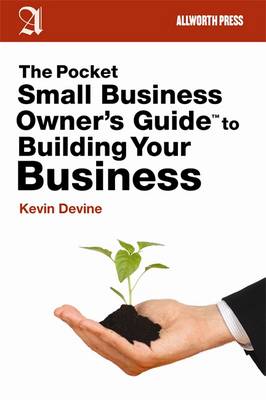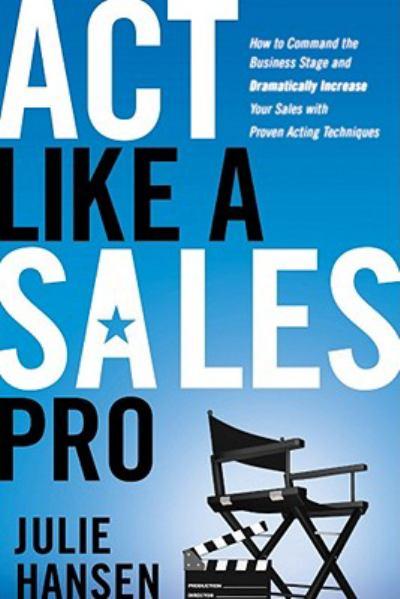Salespeople have questions, Jeffrey has answers.
I get a ton of emails from people seeking insight or asking me to solve sales dilemmas. Here are a few that may relate to your job, your life and, most important, your sales thought process right now.
Jeffrey, I am a marketing and sales rep for a company that sells emergency cleanup services. I visit prospective customers almost daily, mostly insurance agents and property managers, and provide value. Given the nature of what we do, my biggest challenge is coming up with objectives for each visit. Do you have any advice for me? Roxanne
Roxanne, Bring a current customers that has just had a major cleanup. Talk to them about what happened before, what caused it, what happened during, and then what happened after. What was the outcome? If you’re really looking for an objective, if you’re really looking for subject matter to talk your customers about, what could be better than something you’ve already done and what could be better than the proof you could provide through the voice of your existing customer? Do that and all of your watermelon will come right from the heart. Best regards, Jeffrey
Jeffrey, It’s a known fact you are a great believer in the teachings of Napoleon Hill, like many other sales guys out there such as myself. Expanding the sales team with the most suitable people can be a challenge, and if the person who selects the new sales guys is a fan of Napoleon Hill’s philosophy, then it seems natural that the new guys also should share it. How do you personally go about finding new employees, assuming you’re looking for people that share the same philosophy? Do you have a certain approach of recognizing if a person will qualify, in order to spare a potentially unnecessary meeting? David
David, No. There is no way. However, there are questions you can ask during the interview such as, “What are the most impactful books you’ve read?” instead of “Have you read Napoleon Hill’s Think and Grow Rich?” This will give you a long list of books, or it will tell you the person doesn’t read books. I want to know the most impactful books the person has read. That will tell me a little bit about their philosophy. For example, if he or she is reading a John Grisham novel versus an Ayn Rand novel, I have a clue as to what kind of thinker the person is. If a person has read Woody Allen he or she will likely be kind of a humorist. Or maybe the person has read Dorothy Parker. But the bottom line is whatever that person has read is an insight into his or her thought process. Find that out and you will find out if you have a good person or not. Best Regards, Jeffrey
Jeffrey, My company helps small B2B businesses plan a video strategy and develop web series and webinars to tighten their bond with their customers. I’m feeling a great deal of resistance from people about creating videos to grow their business. The objections seem to fall into two major categories: 1) fear of visually being on the web (in fact, their social media is probably non existent as well) and 2) I can do this myself. I can hire the kid next door. Besides leaving them a copy of Social BOOM!, which I do, what approach would you suggest? Pat
Pat, My recommendation is that you have examples of video testimonials from other customers, not just about a video testimonial of a third party, rather a video testimonial about you. It should be about how they were reluctant, about how they thought the kid next door could do it, about how they thought the price was too high, about how they thought they were ugly on film. All of the elements that you have as objections can be overcome by an existing customer who loves you. That’s the easiest way to do it so when you get the objection you can say, “Oh, you know what? You may be right, but let me show you how a couple of my customers feel about the entire process.” That’s the first half of your presentation. The second half should be examples of videos you’ve done that rock – examples of videos you’ve done that are up on somebody else’s Facebook business page or up on their YouTube channel that has 2,000 or 3,000 views. Your job is not to give a sales presentation. Your job is to show examples of how other people can use and profit from what it is that you do. Do that, you win. Best regards, Jeffrey
Jeffrey, There’s something that has never made sense to me. I’m required to make cold calls as part of my daily routine. At the same time, my boss man could not be more put out by people that cold call him throughout the day and I agree with him. Yet every morning starts out with the same old “Let’s get smilin’ and dialin’!” Smile for what? You don’t even believe in what I’m doing! Scott
Scott, Have your boss sit down next to you and make cold calls himself. Let him piss off the same people you’re pissing off. Let him see what a total waste of time cold calling is – how it affects your mood, how it affects your belief system, how it affects your personal pride, and how it affects your attitude. Then start to call customers you’re already doing business with, customers who love you. Ask them if you can come over and help them out for an hour. Ask them if you can come over and talk about how your product is used. Ask them if you can come over and help build the relationship. Tell them you need to make a ‘good will’ visit. Those are the people who will invite you right in and talk to you for a half an hour and maybe help you earn a referral. That’s where the money is in sales, not in cold calling. Cold calling pisses off your boss. Imagine what it does to your customers. Referrals – that’s where the money is. Best regards, Jeffrey
Reprinted with permission from Jeffrey H. Gitomer and Buy Gitomer.
About the Author



